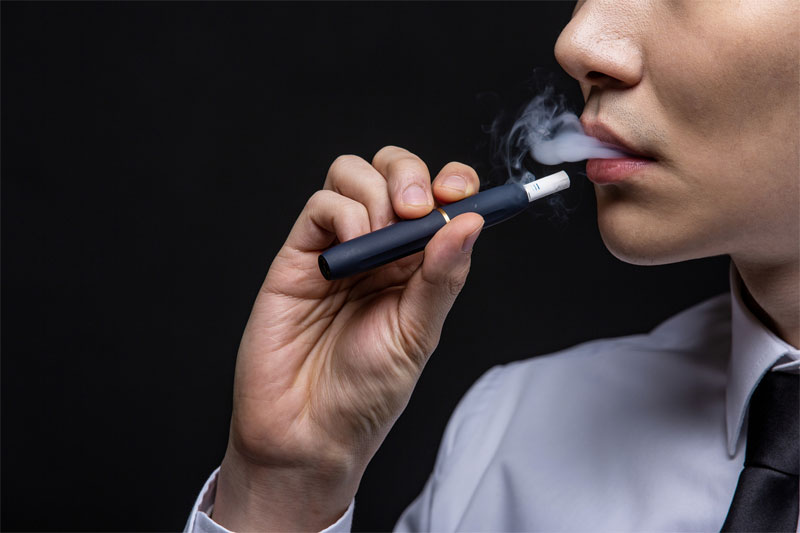One of the primary components of e-cigarette liquid is nicotine. Nicotine is a highly addictive substance that can have several adverse health effects, particularly on the cardiovascular and nervous systems. For instance, nicotine consumption can increase heart rate, blood pressure, and even lead to arterial stiffness, potentially resulting in long-term health consequences. Additionally, the addictive nature of nicotine makes it incredibly challenging for users to quit, inadvertently creating a continuous cycle of dependency.
These liquids also include various flavorings, designed to enhance the vaping experience. However, many of these flavorings contain volatile organic compounds (VOCs), which can be harmful when inhaled. Some studies suggest that regularly inhaling VOCs can irritate the lungs and potentially lead to lung disease after extended use. Moreover, certain flavoring chemicals such as diacetyl, used to create buttery flavors, have been linked to a severe condition known as “popcorn lung,” which causes permanent lung damage.
Aside from the chemical composition, the physical handling of e-cigarette liquids presents additional risks. Accidental ingestion or dermal exposure to e-liquid, particularly those containing nicotine, can lead to acute nicotine poisoning. Symptoms of nicotine poisoning include nausea, increased heart rate, vomiting, and in severe cases, can be life-threatening. This risk is particularly concerning for children and pets, who may inadvertently come into contact with these substances at home.
The marketed perception of e-cigarettes as a safe alternative can also lead to unintended consequences, such as the renormalization of smoking behavior among youths and non-smokers, potentially increasing the prevalence of nicotine use in populations that previously abstained from smoking-related products. The allure of attractive flavors and the misconception of safety contribute significantly to this phenomenon.
If you’re using e-cigarettes or considering them, it’s crucial to stay informed about the potential risks associated with their use. Understanding e cigarette liquid dangers can empower users to make safer choices and encourage discontinuation if adverse health effects are noticed.
FAQs
What are the long-term effects of inhaling e-cigarette vapor?
Long-term effects are still under investigation, but potential risks include respiratory issues and cardiovascular problems due to the inhalation of chemicals found in vape liquids.

Is nicotine-free e-liquid safe?
While nicotine-free liquids eliminate addiction risks, they still contain other chemicals that could pose inhalation risks. It is not entirely without risk.
Can e-cigarettes help in quitting smoking?

While some use e-cigarettes as a smoking cessation tool, they are not FDA-approved for this purpose. Consulting a healthcare professional for cessation support is recommended.

